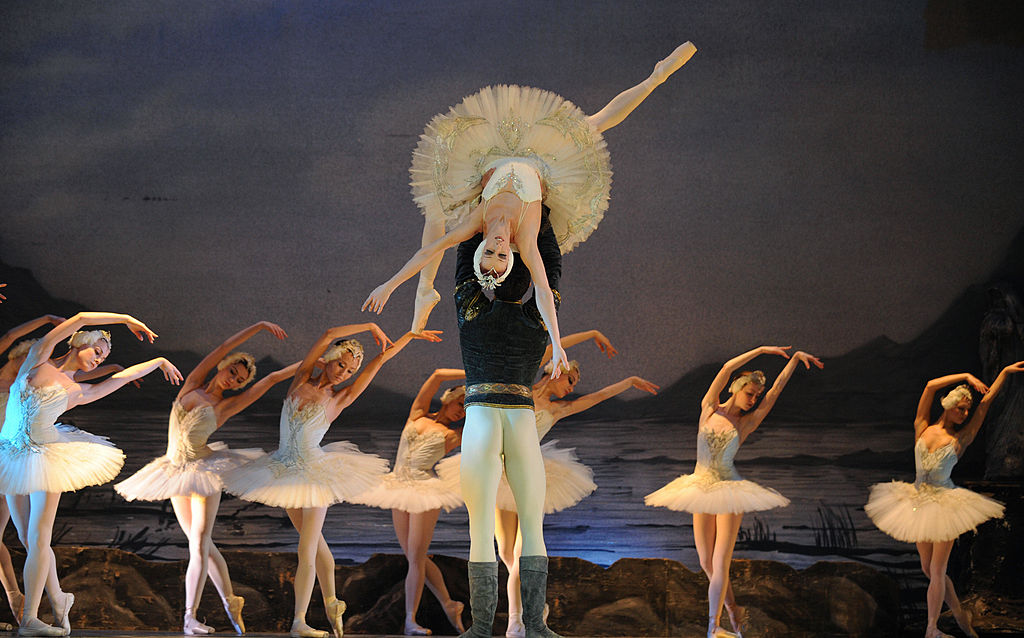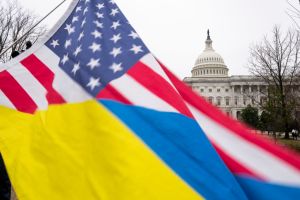In the three weeks since Vladimir Putin launched his shocking invasion of Ukraine, the West has surprised the world with the severity of the economic sanctions it’s imposed. No one has been more surprised than Putin himself, who believed the West too soft and his own nation’s oil too crucial to the global economy.
How the West can further support Ukraine — while also avoiding the not-insignificant risk of a nuclear war — is a complex question. It will not be answered, however, by indulging in ugly prejudices or shunning Russian culture writ large.
Since the war began, vandals have targeted businesses that are Russian-themed or owned by Russian expatriates. War often empowers blunt and craven acts in support of nationalist causes, so these acts of destruction are far from surprising. Yet this senseless anti-Russian sentiment has even made its way into some of the world’s great concert halls and opera houses.
Recently the Cardiff Philharmonic announced it was canceling a scheduled program featuring works by Tchaikovsky. In Montreal, Russian piano prodigy Alexander Malofeev was pulled from a scheduled performance with the Montreal Symphony Orchestra. Both institutions cited geopolitics and support for Ukraine as reasons to pull the performances.
That artistic institutions have surrendered to this mob mentality is worrisome, given that artists are inherently international and depend on free expression and liberal principles to thrive.
Music lovers know that Tchaikovsky eschewed the overt nationalism of his time, bridging Russian folk music with themes and innovations from the Western European schools to bring about world classics like “Swan Lake,” “The Nutcracker,” and “Second Symphony” — known as the “Little Russian” and ironically inspired by Ukrainian music.
Tchaikovsky’s brilliance transcended his time and place. His “1812 Overture,” while written to commemorate a Russian military victory, is a fixture of Fourth of July celebrations, when fireworks, cannons, and symphonic music combine to celebrate American freedom. Christmas celebrations around the world are set to his “Dance of the Sugarplum Fairy,” “Waltz of the Flowers,” and “Russian Dance.”
Pulling an entire composer, especially one as influential as Tchaikovsky, is a foolhardy move, but it’s even more questionable coming from those who ought to be aware of such nuances.
Similarly, the Montreal Symphony Orchestra’s decision to pull Malofeev feels more like the work of an outside PR consultant than a considered decision by a musical institution. At 20 years old, Malofeev is a peerless performer. He has communicated support for Ukraine and spoken against Putin’s war. Despite his brave stand, the Montreal Symphony Orchestra clarified its reasoning, citing concerns about promoting “Russian cultural product.”
We can only hope that Cardiff and Montreal stand alone in their concern about “Russian cultural product.” Russian titans like Tchaikovsky, Shostakovich, and Stravinsky, with their transcendent understanding of music, the individual, and the human condition, bear little resemblance to Vladimir Putin and his authoritarianism. Indeed, their “Russian cultural product” stands opposed to such militant and nationalist causes. (Shostakovich lived and worked under constant threat in Stalin’s Russia, and Stravinsky’s works were placed on a list of music the Nazis considered to be “harmful.”)
That’s not to say that there aren’t distinctions to be made.
For example, the Bolshoi Ballet — regarded as one of the best ballet companies in the world — is funded by the Russian state. The Royal Opera House in London cancelled the Bolshoi’s tour for this coming summer. The selected programs, Don Quixote and, yes, Swan Lake, aren’t at issue. It’s the relationship between the company and Putin’s government. For his own part, Bolshoi choreographer Alexei Ratmansky left the company after the invasion and returned to the United States, even though he was choreographing a new work. Born in Russia, trained in Ukraine, Ratmansky looks to peace in the hope he might be able to continue his work outside the shadow of Putin’s war.
Art has always built bridges, increased understanding, and transcended a given time and place. We can only hope that artistic institutions can walk the fine line between standing against Putin’s Russian aggression and upholding their integrity by continuing to showcase the best that the artists and people of Russia have to offer.
In the United States, one American company seems to have struck that balance. This past weekend, the Philadelphia Ballet finished its final run of Swan Lake — staring Ukrainian ballerina Oksana Maslova — by first playing the Ukrainian national anthem.


















